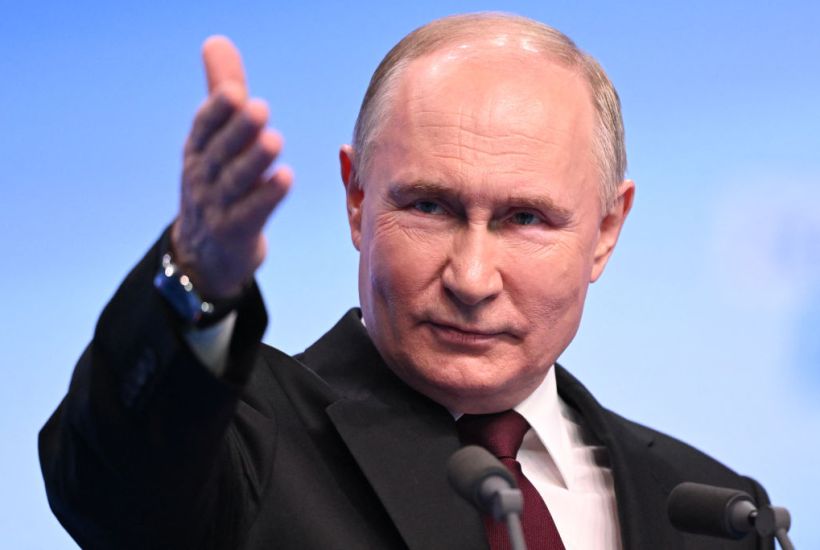As expected, following a three day ‘vote’, Vladimir Putin has once again crowned himself president of Russia.
As of 9 a.m. Moscow time, according to the central electoral commission, 99.7 per cent of ballot papers had been counted with Putin claiming 87 per cent of the vote – higher than he’s managed in any other previous election.
Already a subscriber? Log in
Subscribe for just $2 a week
Try a month of The Spectator Australia absolutely free and without commitment. Not only that but – if you choose to continue – you’ll pay just $2 a week for your first year.
- Unlimited access to spectator.com.au and app
- The weekly edition on the Spectator Australia app
- Spectator podcasts and newsletters
- Full access to spectator.co.uk
Or




















Comments
Don't miss out
Join the conversation with other Spectator Australia readers. Subscribe to leave a comment.
SUBSCRIBEAlready a subscriber? Log in